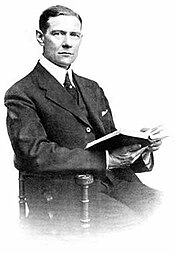
Samuel Zwemer has been called the "Apostle to the Muslims". He was a pioneer missionary who spent his life sharing the Gospel with the Muslim world and calling the church to take seriously it's mission of preaching the message of Christ's kingdom in all the world, especially the "unoccupied fields" of the Muslim world. Here are a few quotes from an article he wrote called "The Glory of the Impossible".
Our willingness to sacrifice for an enterprise is always in proportion to our faith in that enterprise. Faith has the genius of transforming the barely possible into actuality.
You have a factor here (speaking on the Great Commission) that is absolutely infinite, and what does it matter as to what other factors may be. 'I will do as much as I can,' says one. Any fool can do that. He that believes in Christ does what he can not do, attempts the impossible and performs it." - Charles Spurgeon
Does it really matter how many die or how much money we spend in opening closed doors, and in occupying the different fields, if we really believe that missions are warfare and that the King's glory is at stake?
The unoccupied fields of the world must have their Calvary before they can have their Pentecost.
The unoccupied fields of the world await those who are willing to be lonely for the sake of Christ.
Who would naturally prefer to leave the warmth and comfort of hearth and home and the love of the family circle to go after a lost sheep, whose cry we have faintly heard in the howling of the tempest? Yest such is the glory of the task that neither home ties nor home needs can hold back those who have caught the vision and the spirit of the Great Shepherd. Because the lost ones are His sheep, and He has made us His shepherds and not His hirelings, we must bring them back.
There is nothing finer nor more pathetic to me than the way in which missionaries unlearn the love of their old home, die to their native land, and wed their hearts to the people they have served and won; so that they cannot rest in England, but must return to lay their bones where they spent their hearts for Christ. How vulgar the common patriotisms seem beside this inverted homesickness, this passion of a kingdom which has no frontiers and no favored race, the passion of a homeless Christ! - P.T. Forsyth
There is no instance of an Apostle being driven abroad under the compulsion of a bald command. Each one went as a lover to his betrothed on his appointed errand. It was all instinctive and natural. They were equally controlled by the common vision, but they had severally personal visions which drew them wither they were needed. In the first days of Christianity, there is an absence of the calculating spirit. Most of the Apostles died outside of Palestine, though human logic would have forbidden them to leave the country until it had been Christianized. The calculating instict is death to faith, and had the Apostles allowed it to control their motives and actions, they would have said: "The need in Jerusalem is so profound, our responsibilities to people of our own blood so obvious, that we must live up to the principle that charity begins at home. After we have won the people of Jerusalem, of Judea and of the Holy Land in general, then it will be time enough to go abroad; but our problems, political, moral and religious, are so unsolved here in this one spot that it is manifestly absurd to bend our shoulders to a new load." - Charles H. Brent
When Judson was lying loaded with chains in a Burmese dungeon, a fellow prisoner asked with a sneer about the prospect for the conversion of the heathen. Judson calmly answered, "The prospects are as bright as are the promises of God"
There are hundreds of Christian college men who expect to spend life in practicing law or in some trade for a livelihood, yet who have strength and talent enough to enter these unoccupied fields. There are young doctors who might gather around them in some new mission station thousands of those who "suffer the horrors of heathenism and Islam," and lift their burden of pain, but who now confine their efforts to some "pent-up Utica" where the healing art is subject to the law of competition and is measured too often merely in terms of a cash-book and ledger. They are making a living; they might be making a life.
Do not pray for easy lives; pray to be stronger men. Do not pray for tasks equal to your powers; pray for powers equal to your tasks. Then the doing of your work shall be no miracle, but you shall be a miracle. - Phillips Brooks
No comments:
Post a Comment